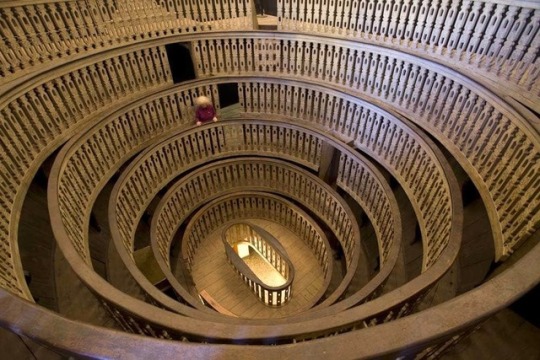Don't wanna be here? Send us removal request.
Photo
To splay on display

The first anatomical theatre of Padua, 1594.
777 notes
·
View notes
Photo

Francesco Clemente (Italian, b. 1952), Abbraccio, 1983. Pastel on paper, 66 x 48.2 cm
234 notes
·
View notes
Photo
The horizon looks like this

Lisa D Manner (Swedish, b. 1979), DYKE, 2016. Oil on panel, 40 x 30 cm.
396 notes
·
View notes
Photo

“Marlene Dumas: Myths & Mortals,” by David Wirner
126 notes
·
View notes
Photo

Makeup artist Lucy Bridge recreates a painting of Naomi Campbell by Marlene Dumas on model Theo Maddix for Charles Jeffrey Loverboy Spring/Summer 2018 Menswear Show
607 notes
·
View notes
Photo

"In every language there is an ineffable content in the words you speak. " -Costa + Jodorowsky (at Koreatown, Los Angeles)
0 notes
Photo

To release the negatime energy of those that wish us harm.
0 notes
Photo




·
-- Marlene Dumas, GREAT MEN, 2014
This series---by the high goddess of translucence Marlene Dumas---consists of “ink-wash drawings depicting notable homosexual men from across the nineteenth and twentieth centuries alongside brief biographies of each figure. The series was created in reaction to the recent political situation in Russia, where the promotion of homosexuality is illegal, and first exhibited there in Manifesta 2014” (”Close up: Great Men by Marlene Dumas”).
More than the images or content of the show, I am fascinated by Dumas’ choice of presentation. We have, here, a genealogy---a family tree but without distinct form, no roots or branches, no discernible trajectory through which a life-force might flow. Instead, we’re given a grid: static, unassuming, and yet the power of the trace of the men’s lives through the ink on the pages is consuming. It’s a less forward motion, more present vibration sort of feeling. As I imagine it to be, standing in that room.
In a video interview for the Tate Modern’s retrospective of her work in 2015 titled THE IMAGE AS BURDEN, Dumas stated: “[GREAT MEN] is not provocative in its form. It must feel, in a sense, quite conservative almost so it can attract you to go inside the story and pulls you in.”
It’s a method of staging I believe in fully---while studying somatic psychology and poetry, I learned that I can’t throw someone in the murk of experimental prose and expect them to find their way out by finishing the book. A maze with no exit can only entertain for so long, and it’s much easier to stop reading before one’s even begun. But to write a sentence clear and persuasive---a inviting porch that leads into a long hallway with a carpet runner, pictures on the wall, doors leadings to a living room, a bedroom, with unassuming furniture and trinkets and large windows onto a forest and then slowly, before they know it, they pass rooms with no walls, rooms that are interstate highway overpasses, rooms textured with memories, the hallway curves and everything becomes a mirror.
To write a sentence that pulls you in might be my strongest imperative, for now.
And so I take a cue from Marlene Dumas. I cannot wait to see her images in person, the textures and layers, I might fall to my knees in that room made real by my eye’s light drinking in the glow of all that skin.
#against daylight#queer art#queer history#figuration#architexture#poetry#novelist#rogue research#marlene dumas#james baldwin#oscar wilde#dmitry chizhevsky#tatemodern
156 notes
·
View notes
Photo

·
Anza Borrego was not ready to be a social media sensation.
2 notes
·
View notes
Quote
It is comforting… and a source of profound relief to think that man is only a recent invention, a figure not yet two centuries old, a new wrinkle in our knowledge, and that he will disappear again as soon as that knowledge has discovered a new form.
Michel Foucault, The Order of Things, 1970. Originally published as Les Mots et Les Choses, 1966.
3 notes
·
View notes
Photo

·
Reorientation (at Hellhole Canyon, no less)
1 note
·
View note
Quote
... massive trauma deletes all pre-existing good memories to leave a kind of desert afterwards, or leaving the sense that everything was a paradise before, but there is no possibility to retrieve memories of that period... the past becomes idealized but irretrievable.
Clara Mucci, Beyond Individual and Collective Trauma, 2013.
2 notes
·
View notes
Photo

·
“Inmate of Elmira Reformatory showing four views of head,” from Havelock Ellis’ The Criminal. 1890.
3 notes
·
View notes
Photo

·
"The figure grew closer along the dunes. Dry air wrapped along its neck, cheeks burning in the sun. The river, gone. Pale boards of a storefront scraped by days unnecessarily harsh.
The figure remembers a broad place, littered with soft ponds, clouds like antelopes kissing the mountains’ edge. To forget, it would have to pull its body apart--sever its limbs--pull out its musculature. I was prepared once to rid myself of flesh before I knew what erasure felt like. Before I sensed the crossing dawn shine through my body, no shadow, no form. Only the wide open sheath of me. Hot stars spiral around the body misplaced in the projection of time. Left apart, shining.
And inching forward, its foot marks a journey of displacement."
--notebook excerpt, JH Phrydas. 2016.
5 notes
·
View notes
Quote
“[W]andering creates the desert.”
Edmond Jabès (via viperslang)
32 notes
·
View notes

